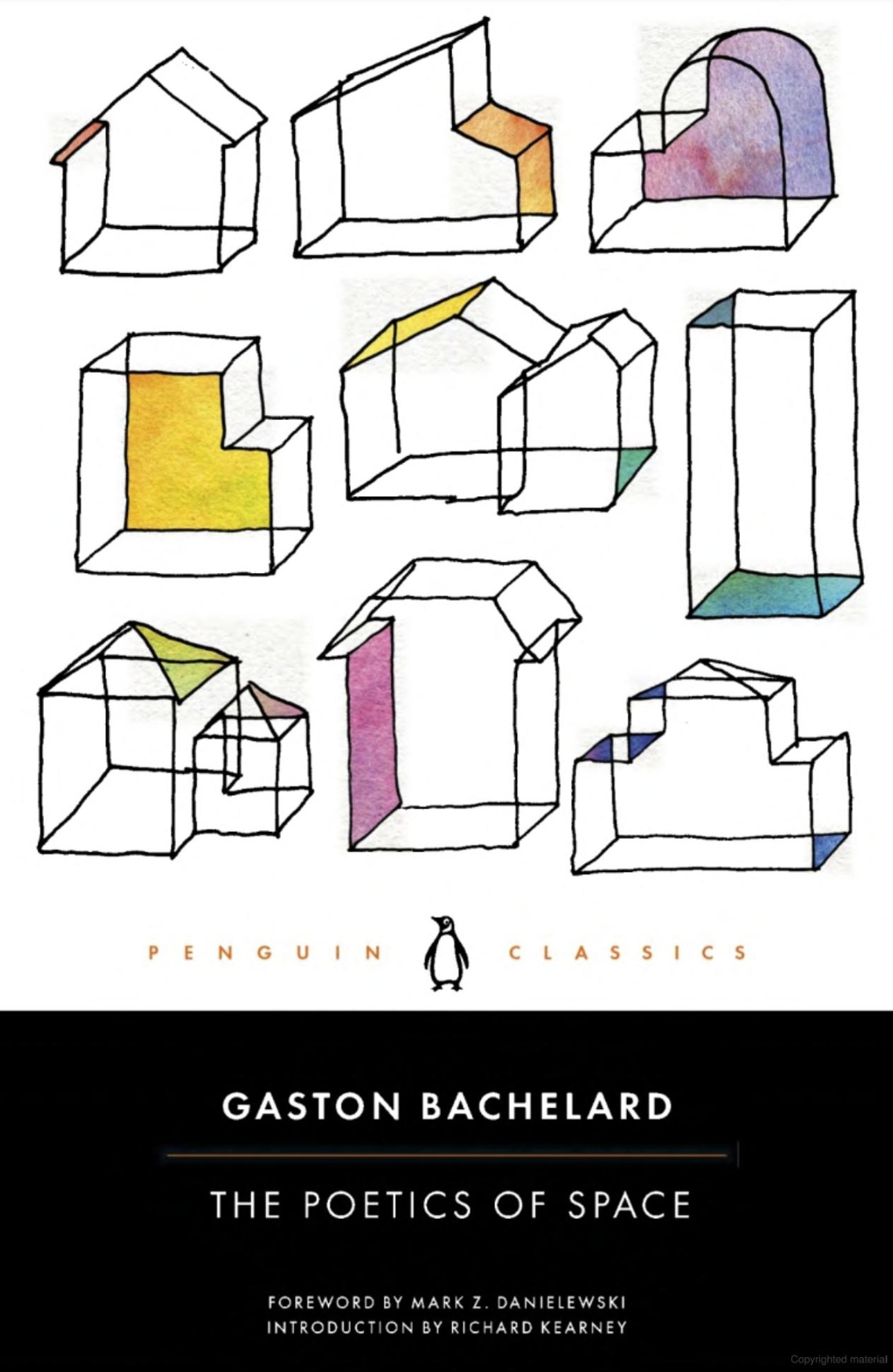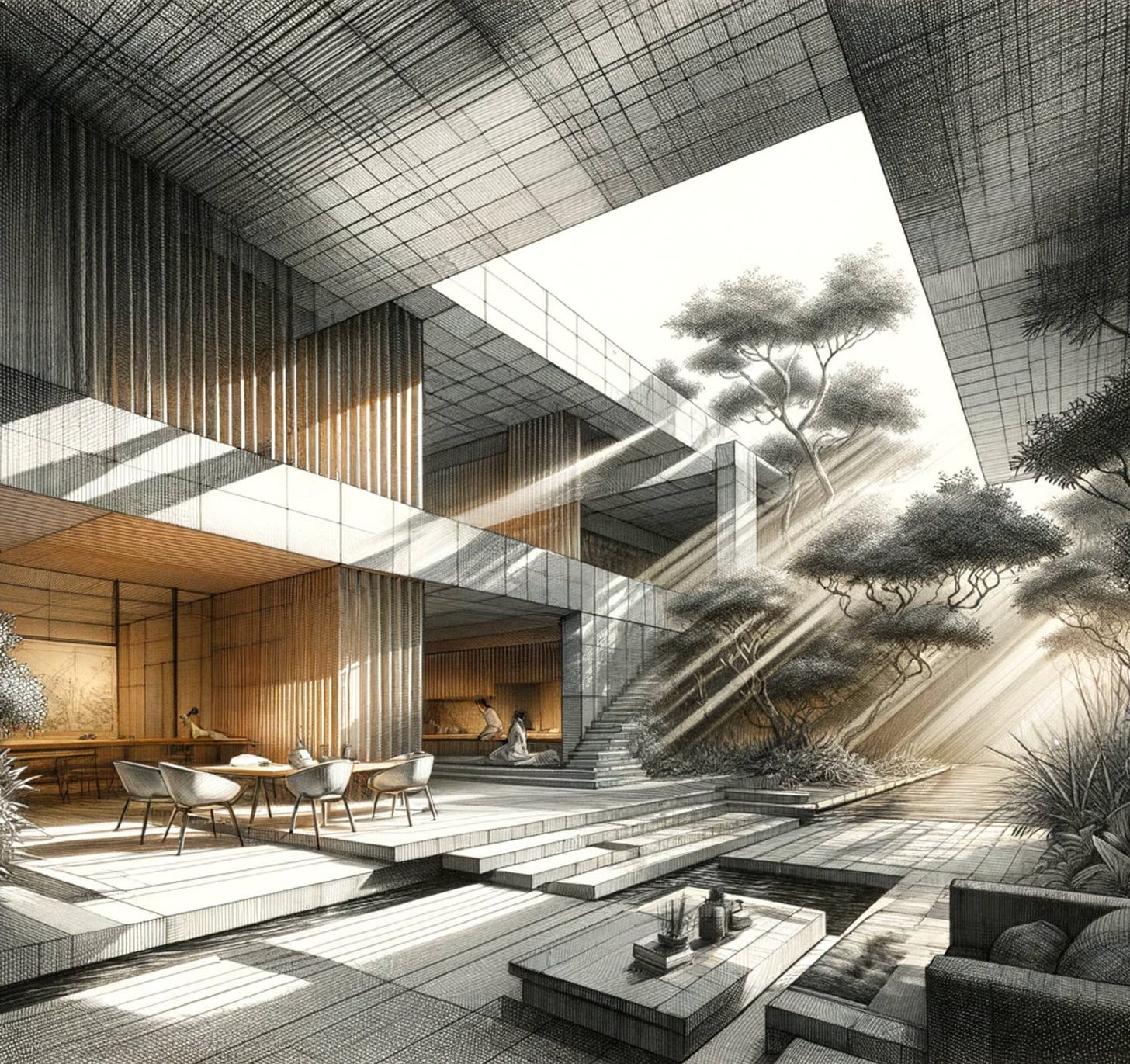AI is (probably) better than your local architect
Many of us spend most of our lives in completely crappy spaces without any worthy poetics or shadows. Maybe thanks to a well trained AI module this could change in the not-so-distant future.
I'm trying to turn my personal initiative of reading 2-3 books a week into a habit. Usually, I listen to most of the books on Audible at a relatively dizzying speed (2.3x, though it requires an adjustment period and depends heavily on the type of book). This method manages to "cram" entire books into my brain in a remarkably short time. Two books a week I "read" this way through audio, and typically one book I read either physically or on Kindle. Whenever I engage in some monotonous activity, like working with graphic software like Figma or Photoshop, cooking gourmet meals for the kids, or just walking from point A to point B for whatever reason, I "cram" a book into my brain.
This initiative actually started a little before the war, and initially, the war caused me to abandon it. But in the last couple of months, I've returned to it with greater intensity. Most of the books I read are technical or professional, very little fiction (simply because it requires a different mindset). However, I discovered that if once or twice a month I "waste" a bit of time rereading books I've read before, it actually propels me forward even more. Let me explain:
Like any normal person, I remember in a pretty general way the "sequence of events/ideas" in the books I've read and maybe a key point or two in more detail. But as the years go by, these books turn into a sort of hazy memory. What's important for the brain is mainly to remember which book you read what in, and if you're a compulsive book hoarder like me, you always have the book around to find what you're looking for and recall the idea precisely. But the practice of rereading a book you've read before has great value because of the journey you've been through in life since you read the book until now. New insights you've gathered on the book's topic are sometimes filed in a different section of your mental library, and the brain doesn't always create new mental connections between works you've read at different times in your life or when you were in different mindsets.
So, in the last couple of months, I reread two books I read at different times during my training as an architect. The first is "The Poetics of Space" by the philosopher Gaston Bachelard, which I read in my second year of studies. It's a complex book, with very high-level French and a very "typical" philosophical style, but it was very foreign to me at the time when I still hadn't acquired the skill and recognition of French that I have today. I remember reading it was a real struggle because I understood I was reading pure gold in terms of architectural ideas, but it was very hard for me to distill it into the practical work required of me.
In this book, which is one of the great works (in my opinion) in the field of phenomenology (a branch of philosophy), Bachelard discusses several principles, among them the strongest principle being that we as living beings with childhood memories have a kind of "sum of memories" regarding the morphology of things. It's a bit abstract, but stay with me for a moment – he talks about the fact that all our "good" memories from moments of warmth and love that occurred at home or in the homes we grew up in merge with the physical atmosphere created in that home, including lighting, temperature, smell, and whether the space was big or small, modest and sparse or glittering and grand, etc. This merging of pleasant sensations and the "reading" of the space we were in during those moments (especially when we were children, as mentioned) creates in our brains a kind of unconscious yearning for a specific and very "personal" type of space.
Many of us try to recreate these nostalgic moments throughout our lives, and they are the very things that will make us choose one place or another to live in. Bachelard used terms like "nesting" and talked about things that might sound very esoteric but are also very true – like the content of drawers we rummaged through as kids, closets we hid in, and mental concepts like "the shell," "the miniature," and "intimate spaces." All those magical moments of quiet when we breathed inside a closet, with all the smells mixing with the sliver of light created through the narrow crack we peeked through in anticipation of being found (or not...) during a game of hide and seek. All these things, Bachelard claims, sum up to a "mental agenda" we have regarding the living spaces we live or aspire to live in.
The second book I read, right at the end of my master's degree, and recently reread is "In Praise of Shadows" by Jun'ichirō Tanizaki. This book was written in 1933 – some 25 years before Bachelard wrote his "Poetics of Space." This book talks about the charged encounter between modernity and the traditional way of living in Japan. It's a much shorter and much easier book to read. Part of it is also amusing, with excellent and surprising descriptions of many everyday objects, from teapots to toilets. But one of the central ideas in it is, as the book's title suggests, the praise of shadows. Tanizaki talks about the fact that modern architects developed an obsession with efficiently bringing natural light into modern apartments, but what creates the true quality of "human" architecture are precisely the shadows.
Quite delightfully, there are very strong intersecting lines between these two works. I don't know if Tanizaki and Bachelard were even aware of each other's existence (they were born and died within about three years of each other), but one thing's for sure: they didn't read each other's works. "In Praise of Shadows" was first translated into French in 1977 - years after Bachelard's death. And Bachelard's book, published in 1958 in French, was not translated into Japanese during Tanizaki's lifetime either.
Reading (in French) these two books again has caused me to "tighten" my insights about living spaces and regret that most of us spend most of our lives in completely crappy spaces without any worthy poetics or shadows. I haven't been involved in architecture for a long time, but maybe one day I'll return to it for myself or for a close friend or family member. Then I might get to apply my tightened insights following these two works.
All this leads me to something quite interesting that happened to me in recent days. Due to *reasons*, I find myself using artificial intelligence more and more to perform the "heavy lifting" of various graphic elements. I took a few courses in prompt engineering and learned how to fine-tune the best engines today to do really interesting things. For "fun," I built a prompt for GPT-4o and asked it to create a synthesis of the central ideas from Tanizaki's and Bachelard's books and create a simulation of a space designed according to their shared spirit.
I must say, this could be an excellent exercise for a master's degree in architecture, and it's not an easy one. If they had asked me to create such a space in the last year of my studies, it would have taken me quite a bit of time to produce something sufficiently correct. It took GPT-4o less than 40 seconds. The result is before you:
If I were an architecture lecturer and a student submitted this, they would receive a relatively high grade. There are about 4-5 conceptual mistakes here, obviously this conceptual image needs some serious reworking but overall? Not bad at all. It's a bit frustrating to admit this, but today's GPT-4o, rightly configured and with some properly built prompts - could outshine many active architects.




